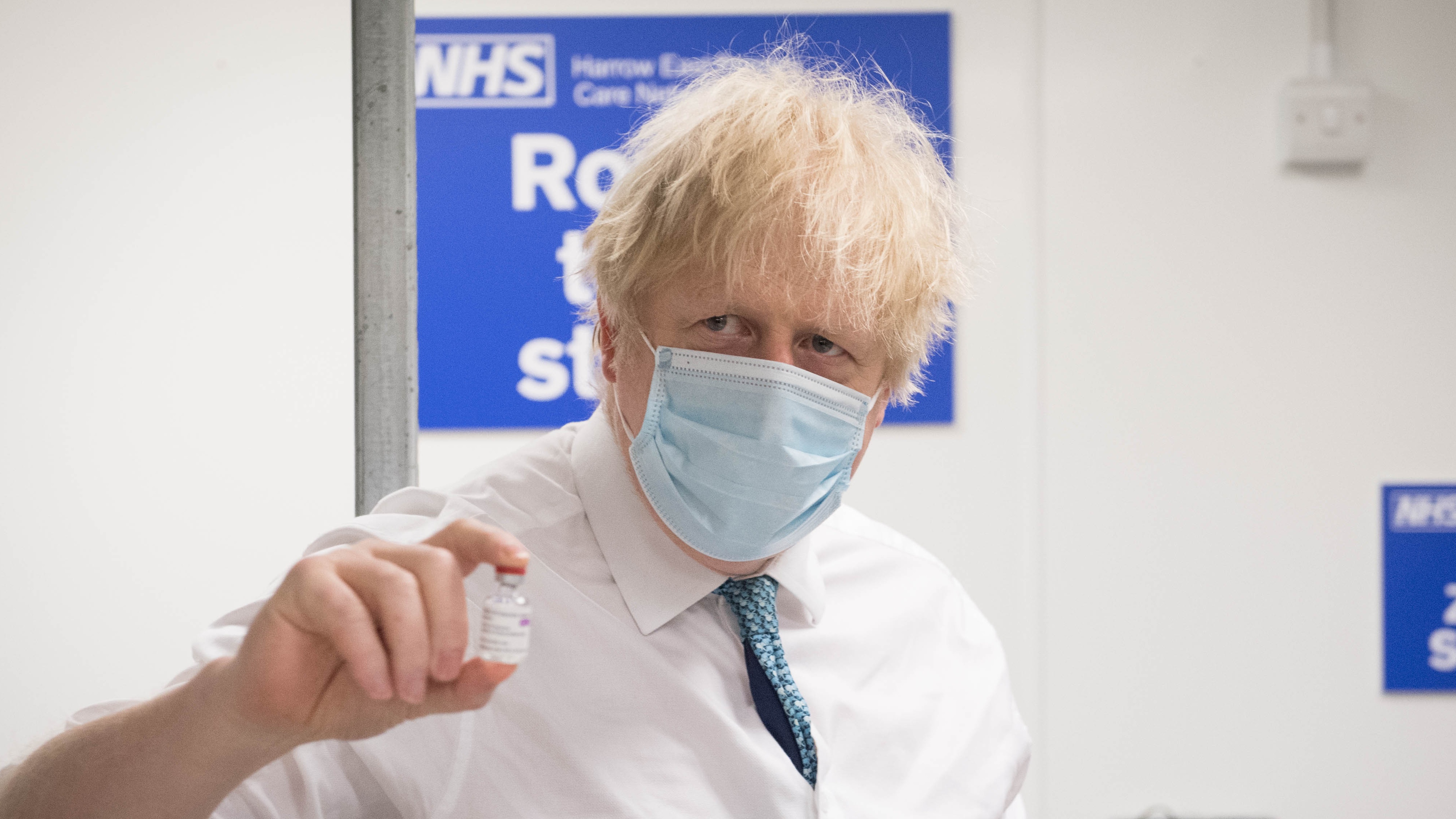Trust in Oxford-AstraZeneca vaccine collapsing across Europe, poll reveals
More than half of people in France, Germany and Spain believe jab is unsafe

A free daily email with the biggest news stories of the day – and the best features from TheWeek.com
You are now subscribed
Your newsletter sign-up was successful
Confidence in the Oxford-AstraZeneca Covid vaccine has plummeted across Europe after a host of European governments suspended its use, a survey has found.
Polling by YouGov found that more than half of respondents in France, Germany and Spain now believe the vaccine to be unsafe – even after all three nations later reversed their decision to stop using the UK-developed vaccine.
In France, 61% of respondents said the vaccine was unsafe, an increase of 18 percentage points from February, while 55% of Germans and 52% of Spanish people felt the same way. Figures collected elsewhere are no more promising, with 43% of Italians saying that they also feel the vaccine is not safe for use.
The Week
Escape your echo chamber. Get the facts behind the news, plus analysis from multiple perspectives.

Sign up for The Week's Free Newsletters
From our morning news briefing to a weekly Good News Newsletter, get the best of The Week delivered directly to your inbox.
From our morning news briefing to a weekly Good News Newsletter, get the best of The Week delivered directly to your inbox.
In the UK, 77% of people said the Oxford vaccine is safe, though confidence has fallen by four points since February.
The survey of more than 8,000 people was conducted between 15 and 18 March, before EU nations resumed the use of the Oxford jab, with YouGov’s lead data journalist, Matt Smith, saying: “The Oxford-AstraZeneca vaccine has undoubtedly suffered damage to its reputation for safety on the continent”, Politico reports.
“Not only have we seen considerable rises in those who consider it unsafe in the last two weeks in Europe, the AstraZeneca vaccine continues to be seen as substantially less safe than its Pfizer and Moderna counterparts.”
The poll comes as a leading member of the Oxford-AstraZeneca vaccine team accused the EU of overseeing a “hopeless” vaccine campaign. John Bell, Oxford University’s regius professor of medicine, told The Telegraph that the EU has “no idea what’s going on”, adding: “They’re hopeless. Completely hopeless. It's really not going well in Europe.”
A free daily email with the biggest news stories of the day – and the best features from TheWeek.com
He added: “Everyone’s got to take a deep breath and realise that we’re not there yet. We’ve got to lean into the global issue much more effectively, and get people vaccinated in the developing world and try to reduce transmissions everywhere.”
Joe Evans is the world news editor at TheWeek.co.uk. He joined the team in 2019 and held roles including deputy news editor and acting news editor before moving into his current position in early 2021. He is a regular panellist on The Week Unwrapped podcast, discussing politics and foreign affairs.
Before joining The Week, he worked as a freelance journalist covering the UK and Ireland for German newspapers and magazines. A series of features on Brexit and the Irish border got him nominated for the Hostwriter Prize in 2019. Prior to settling down in London, he lived and worked in Cambodia, where he ran communications for a non-governmental organisation and worked as a journalist covering Southeast Asia. He has a master’s degree in journalism from City, University of London, and before that studied English Literature at the University of Manchester.
-
 How the FCC’s ‘equal time’ rule works
How the FCC’s ‘equal time’ rule worksIn the Spotlight The law is at the heart of the Colbert-CBS conflict
-
 What is the endgame in the DHS shutdown?
What is the endgame in the DHS shutdown?Today’s Big Question Democrats want to rein in ICE’s immigration crackdown
-
 ‘Poor time management isn’t just an inconvenience’
‘Poor time management isn’t just an inconvenience’Instant Opinion Opinion, comment and editorials of the day
-
 Epstein files topple law CEO, roil UK government
Epstein files topple law CEO, roil UK governmentSpeed Read Peter Mandelson, Britain’s former ambassador to the US, is caught up in the scandal
-
 Iran and US prepare to meet after skirmishes
Iran and US prepare to meet after skirmishesSpeed Read The incident comes amid heightened tensions in the Middle East
-
 Israel retrieves final hostage’s body from Gaza
Israel retrieves final hostage’s body from GazaSpeed Read The 24-year-old police officer was killed during the initial Hamas attack
-
 China’s Xi targets top general in growing purge
China’s Xi targets top general in growing purgeSpeed Read Zhang Youxia is being investigated over ‘grave violations’ of the law
-
 Panama and Canada are negotiating over a crucial copper mine
Panama and Canada are negotiating over a crucial copper mineIn the Spotlight Panama is set to make a final decision on the mine this summer
-
 Why Greenland’s natural resources are nearly impossible to mine
Why Greenland’s natural resources are nearly impossible to mineThe Explainer The country’s natural landscape makes the task extremely difficult
-
 Iran cuts internet as protests escalate
Iran cuts internet as protests escalateSpeed Reada Government buildings across the country have been set on fire
-
 US nabs ‘shadow’ tanker claimed by Russia
US nabs ‘shadow’ tanker claimed by RussiaSpeed Read The ship was one of two vessels seized by the US military